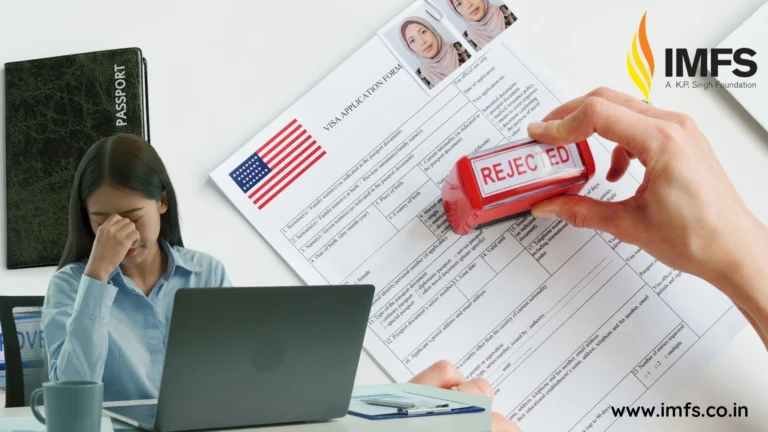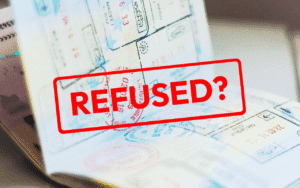There’s a growing anxiety echoing through student communities, visa forums, and even the corridors of embassies:
“Why is everyone suddenly being refused under Section 221(g)?”
It’s not just hearsay. It’s real. But before we panic, let’s break it down.
This blog isn’t a rant. It’s a roadmap—one that explains what’s going on with U.S. student visas in 2025, why it matters to your future, and how to navigate it with calm, clarity, and confidence.
What’s Happening?
Globally, thousands of students are facing temporary visa refusals under Section 221(g) of the U.S. Immigration and Nationality Act. These refusals are not denials, but rather a procedural delay called “administrative processing.”
It usually means the embassy/consulate needs to:
- Review additional documentation
- Conduct deeper security and background checks
- Scrutinize your social media activity for any red flags
In most cases, students eventually get their visas approved, sometimes after just a few days, and often after several weeks. So why the alarm?
Here’s the Catch: It Leaves a Mark
Even if your visa is approved later, Section 221(g) is officially logged as a refusal in the U.S. immigration system.
And this “temporary refusal” becomes a permanent part of your record.
You’ll be asked on every future visa or immigration form:
“Have you ever been refused a U.S. visa?”
And the answer is now: Yes.
Whether you apply for a visit visa (B1/B2), work visa (H-1B), a change of status (I-539), or a green card (I-485)—you must truthfully disclose it.
Why This Matters
Many applicants don’t realize that failure to report a previous refusal, even a 221(g), can be considered misrepresentation. This can lead to:
- Visa rejections
- Ineligibility for immigration benefits
- Even long-term bans under U.S. immigration law
All because of a box left unchecked. Or a memory that fades.
The Reason Behind This Surge in Refusals
Let’s call it what it is: extreme vetting.
The U.S. State Department, under recent directives, has instructed consular officers to:
- Review applicants’ social media activity
- Check for “hostility towards the U.S.”, support for foreign terrorism, or antisemitic content
- Keep detailed notes for security agencies
This means even innocent posts, memes, or political opinions—if misread—could result in delays or further scrutiny.
Read more: “Hope Denied: The Human Cost of Student Visa Refusals”
What IMFS Recommends: A 5-Step Action Plan for Students
1. Disclose Any Refusal – Always
If you received a 221(g), even years ago, say “Yes” when asked about prior visa refusals.
Prepare a brief explanation:
“Yes, I was issued a 221(g) for administrative processing in [Year] during my F-1 visa application. It was later approved.”
2. Keep All Visa Records Organized
Maintain:
- A copy of the 221(g) letter
- The visa approval email or passport with the stamp
- Any supporting communication with the embassy
These documents can save you during future applications.
3. Clean Up Your Social Media
Before your interview:
- Review public posts on Instagram, Twitter (X), Facebook, Reddit, etc.
- Delete anything that can be misunderstood as radical, anti-government, or offensive
- Avoid commenting on or reposting political content, especially involving U.S. policy
Yes, your memes may be funny. But are they worth a visa delay?
4. Stay Calm, But Stay Informed
A 221(g) isn’t a rejection of you. It’s the system taking more time.
The key is to be honest, prepared, and aware of what your visa history now includes.
5. Talk to Your IMFS Counselor
If you’ve received a 221(g), inform your counselor immediately.
We will update your record, guide you on disclosures, and prepare you for future applications or immigration steps.
From Our Desk: What IMFS Is Doing
We’ve updated our Standard Operating Procedures (SOPs) to track every instance of 221(g) among our students.
We ensure that:
- Each student receives clear documentation
- Every future DS-160, ESTA, or I-485 is filled accurately
- You are informed and safeguarded against future risk
Your trust means everything to us. We will continue to monitor these trends and advocate for transparency and fairness in student mobility.
Final Thought: A Generation Watched, Not Lost
This isn’t the “lost generation.”
This is the screened generation. The documented generation.
The generation that carries the weight of compliance—and still dares to dream.
So, clean up your digital house, declare your truth, and walk forward.
We’re walking with you.


